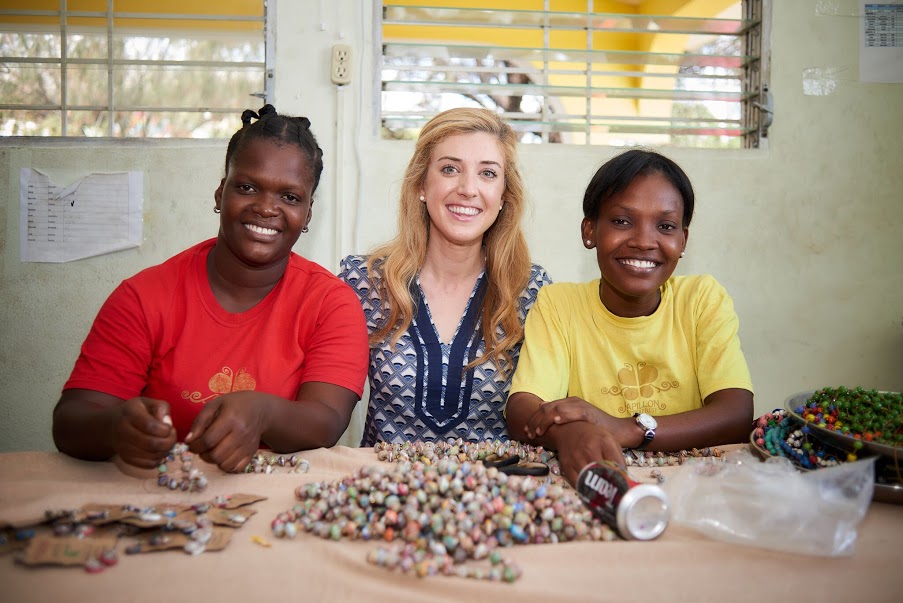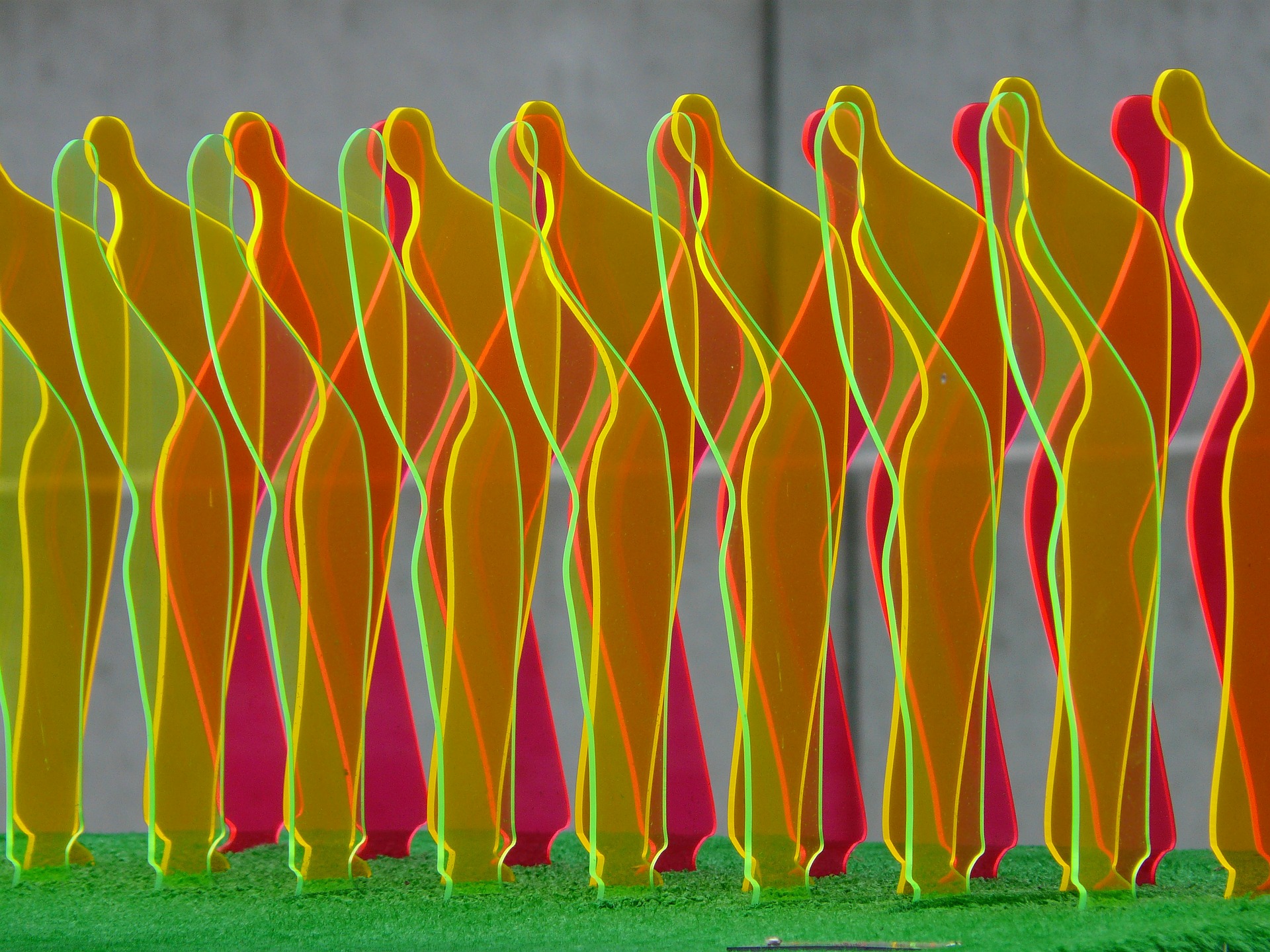It is no secret that employment empowers. The greatest gift you can give is longevity and security through life, this can be achieved by giving someone who is unemployed a purpose, an income and a source of pride. It is becoming more widely acknowledged that artisan employment is creating a ‘new economy’, one which is reminiscent of the bargain employees once struck with their employers throughout the 60’s and 70’s in Europe: they handed their minds and bodies over for 40 hours or more each week, in exchange for security, pensions, mortgages. This has largely disappeared, certainly amongst white collar jobs.
However, as a tool to eradicate poverty, giving security in income is the best way; hence, we are seeing more start-ups focus on this principle of working with people in poverty rather than for people in poverty and it is having excellent results. One of these businesses is called TO THE MARKET, and we were fortunate to speak to Jane Mosbacher Morris, CEO and Founder of TTM, to further understand her mission and the artisan employment scheme as a whole.
Q: How did the idea for TTM originate? And how does sustainability fit into the equation?
JMB: While I never would have predicted that I would end up in the retail industry I was inspired to start TO THE MARKET on a business trip with The McCain Institute and International Justice Mission in India with my then-boss Mrs. Cindy McCain. My “aha” moment came while we were visiting human-trafficking aftercare facilities in Kolkata. I realized I could help fight multi-generational cycles of poverty and exploitation by focusing on economic empowerment for vulnerable communities through artisan enterprise.
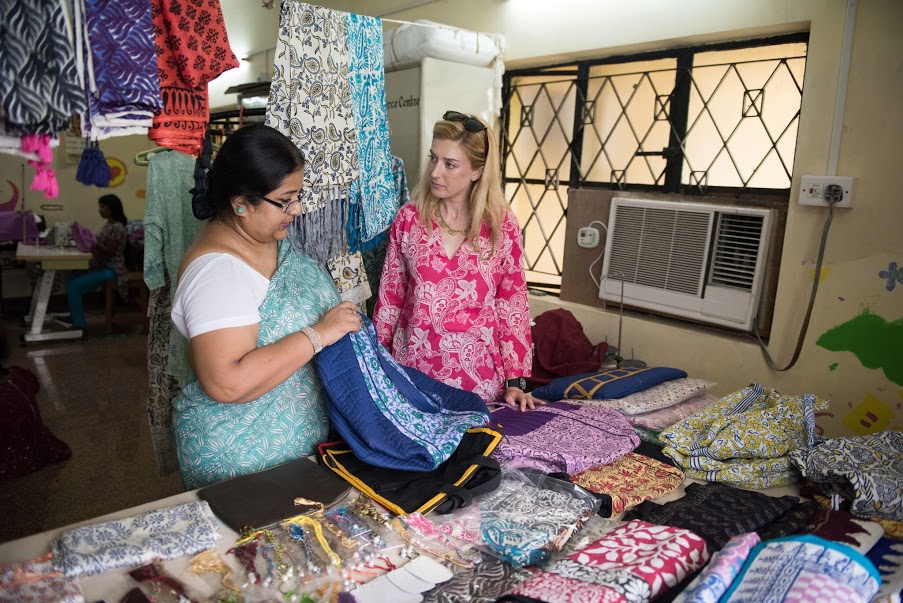
In the photo: Jane Mosbacher Morris, TO THE MARKET Founder & CEO, examining products in Kolkata with shelter staff
Credit: TO THE MARKET
We partner with ethical producers around the world that employ vulnerable communities to deliver best-in-class products to consumers and businesses. TO THE MARKET supports the longevity and sustainability of our producers through expanded market access, consistent orders, and increased sales. Our long-term commitment to our local partners means they are able to sustainably grow their businesses and economically empower themselves and their families. We also work closely with them to focus on natural dyes and upcycling materials, such as metals, recycled paper, and animal by products such as cow horn to lower material costs while reusing readily available materials.
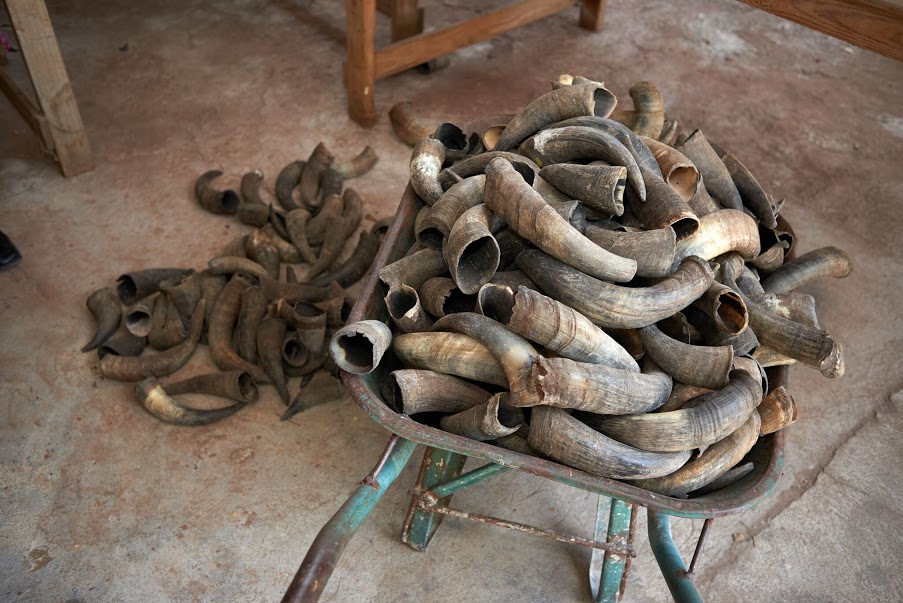
In the photo: Discarded animal cow Horn in Haiti used to make jewelry and home goods Credit: TO THE MARKET
Q: How does TTM adhere to its values and mission while also staying competitive? Is there a unique business model that you use?
JMB: We focus on products already in demand in the US market and then try to be an alternative, ethical source for them. Our unique business model is focused on our custom work, allowing brands, corporations, and non-profits to source almost anything while empowering communities.
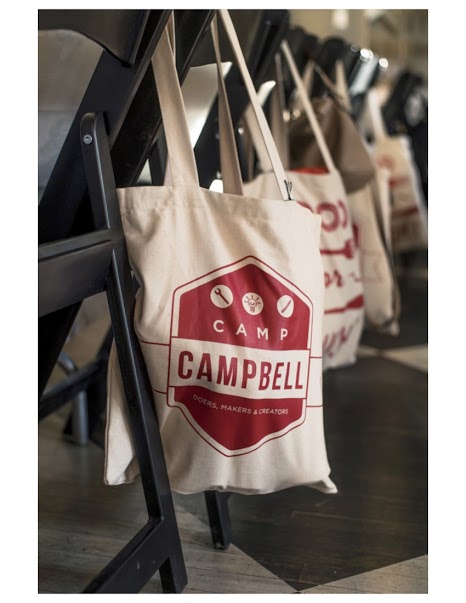
In the photo: Canvas tote bags made for Campbell’s Soup Credit: TO THE MARKET
Q: Are there any unique challenges for sustainability in your industry? How does TTM overcome these challenges?
JMB: As our footprint becomes larger by means of working with more vulnerable communities, how we source raw materials becomes an area where we would like to see more indigenous production for finished items such as zippers and clasps. While we face less of a challenge with our ethical producers in the U.S., it remains a serious challenge in many places where we work such as Haiti, Uganda, and Guatemala. Several of our artisan partners have addressed finished production abroad by utilizing specialized skilled artisans making medallions or beads, or cutting and sewing, while the final product is finished with ethically sourced materials through more beginner skills-training programs in the U.S. such as stringing necklaces or over-dying hand-sewn quilts.
TTM Local Partner Organization, Akola works with marginalized women both in the U.S. and Uganda.
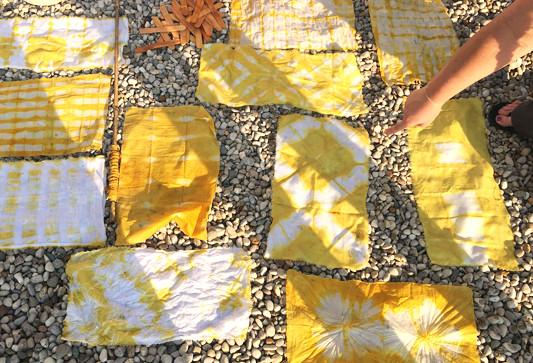
In the photo: Marigold Shibori Dye
Image Credit: Akola Project.
Q: What are some of the criteria or things TTM looks for when sourcing its products?
JMB: I made a conscious effort when I founded TTM to focus primarily on products specifically made by vulnerable communities. TTM tries to work with the most vulnerable and marginalized groups around the world including human-trafficking survivors, war widows, HIV+ women, vulnerable youth, young mothers, and historically marginalized communities where we try to work with artisan partners focusing on prevention and alternative livelihood opportunities. In terms of the actual products, we focus on first and foremost on where the products are made, such as the production environment, social services delivered, and overall impact on the artisan’s life. Of course for TTM to be successful we must sell quality products that are desirable. This is why we also provide trend-forecasting and design support to our artisan partners to ensure they are making goods that can sell.
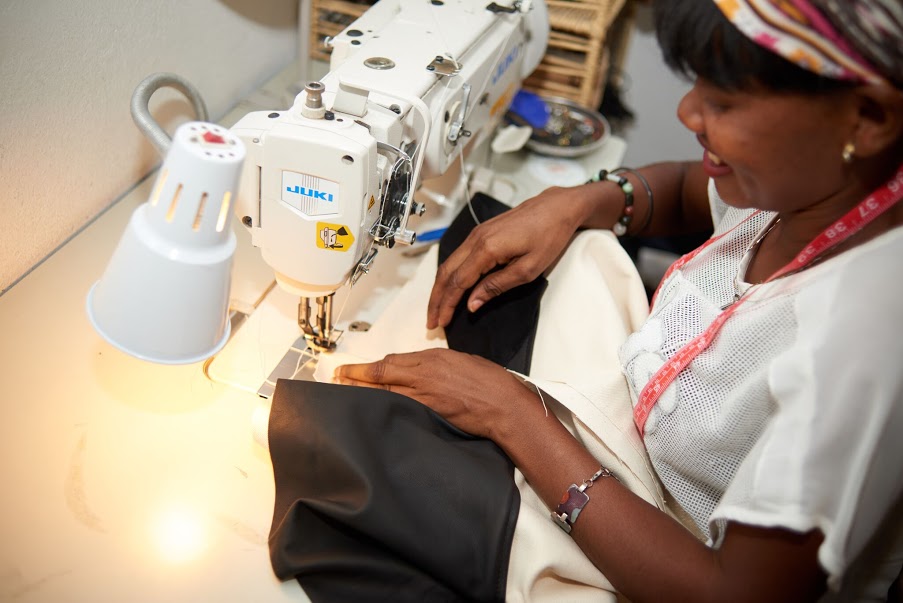
In the photo: One of TTM’s artisan partners in Haiti making our Ethical Leather Tote Bag Credit: TO THE MARKET
Q: Were there any major milestones in your journey to where you are today? Where do you see the direction of the company headed in the future?
Working with Macy’s and Home Depot has been an incredible opportunity, as has all of our custom clients, like General Mills and Levi’s.
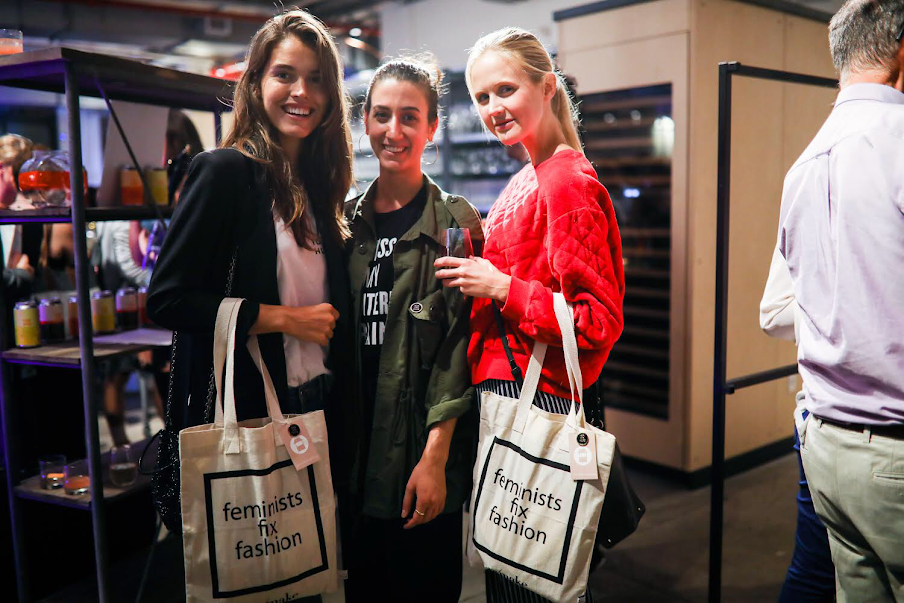
In the photo: Canvas tote bags made by Human-Trafficking Survivors featured at 2017 Spring/Summer New York Fashion Week event Credit: TO THE MARKET
Q: What do you think is the future of sustainability, particularly relating to your industry?
I think the future of sustainability is ensuring that market-driven business models are supported through consumer support and investor capital. Let’s all put our money where our mouth is and #buythechange!
Editors Note: The opinions expressed here by Impakter.com columnists are their own, not those of Impakter.com


